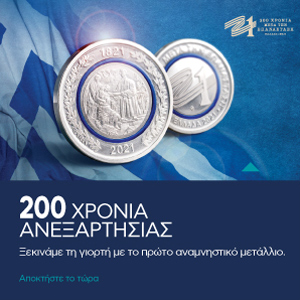Eleftherios Samartzidis is not an ordinary musician. He is a passionate artist who chases his dream from one side of the Atlantic to the other. With an important career in Greece, he decided many years ago to leave everything behind and make the big step in America because of his love for the homeland with which he has special ties.
by Dimitris Filippidis

As he stated in Hellas FM, he fully understands his important cultural role when he plays music among the Greeks of the Diaspora. His goal is to put his own stone in the establishment and perpetuation of Hellenism to the children of the Hellenic-Americans. During his interview, he told us that he feels great honor that the Greek community has embraced him all these years, love our homeland, and entertain so much by listening to his folk music. Especially, during the coronavirus era, Eleftherios was receiving thousands of kind and enthusiastic messages from the Greek-Americans who were listening his unique folk rhythms and were relaxing during these difficult and stressful days.
Many people were dancing at home listening to all the nisiotika and kalamatiano songs that Eleftherios was playing live to the internet so that Hellenic-Americans feel better and more tied with the Greek culture during the coronavirus challenging times.
Eleftherios, with many distinctions in Greece and Cyprus, plays the keyboard and he is the lead musician for Power Station Entertainment for more than 10 years continuously. Greek Americans love and respect him all these years and look forward to each cultural event or festival to listen Eleftherios' music. All his performances are culturally unique as they aim through the artist's own music to transmit and cultivate Greek and Cypriot music to the Greeks. In fact, as those who have heard him say, this work is an ideal opportunity for the young children of the Hellenic American Community to get to know the Greek musical tradition even better.

















